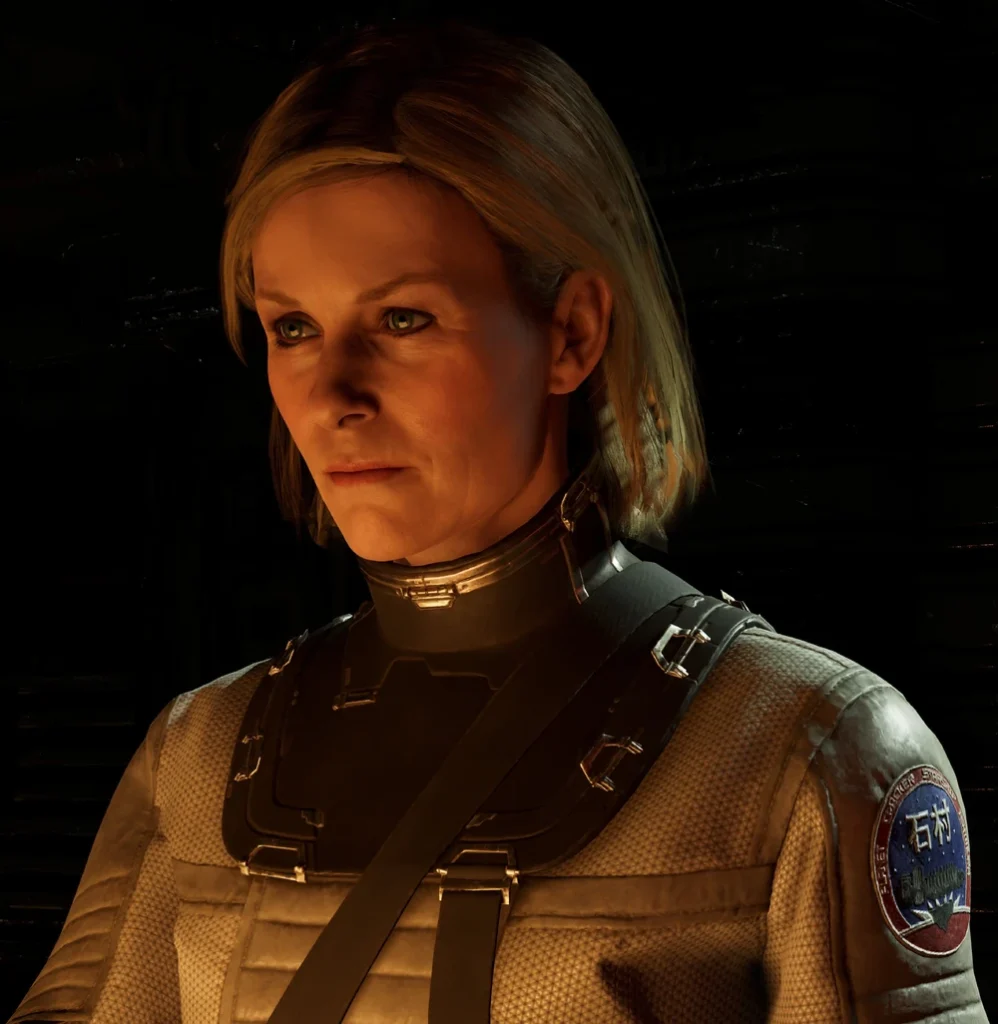Maxence Pierrard, Ragini Kapil, and Lawrence Davidson are students in Vancouver Acting School’s one-year Writing for Film & Television diploma program. They recently entered their original pilot Kris With No Kitchen into StoryHive’s 2016 Web Series competition.
Prior to their arrival, Ragini was a school principal in Delta, B.C., Lawrence, a restaurant manager in Kamloops, B.C. and Maxence, a film student in France.
How did you find out about Vancouver Acting School’s Writing for Film & Television Program?
LAWRENCE: By sheer randomness, I went to a career fair in Kamloops in early 2015, where I was living at the time. My mom told me about it so I went and met [admissions advisor] Paul Donnett, and found out about the screenwriting program. The rest is history!
MAXENCE: I was attending a film school in France where I grew up and quickly realized there was going to be very little opportunity to work as a writer or filmmaker there, unless you happened to be both. In France, there is basically no distinction between writers and directors, very few people who make a living just writing. People think there’s a huge film industry in France because of the New Wave of the 60s, but everything on TV and in theatres these days is mostly American. Then I visited Vancouver in April 2015 and loved it. When I went back home, I realized Vancouver was where I needed to be, this was where I was going to build my life as a writer. I looked online and learned about Vancouver Acting School, and really liked what I saw. So I called and found the admissions team very easy to work with. And here I am!
RAGINI: I was taking part-time Improve classes at Vancouver Acting School when I was invited to Vancouver’s 2015 FanExpo to hear a panel of successful voice actors who were also teachers at Vancouver Acting School. At the Expo, I learned about the full-time Writing program and it really appealed to me because I’ve always been a closet writer. As a school principal, however, I didn’t think I could make that commitment. That’s when I met admissions advisor Paul Donnett, who also happened to be a screenwriter and who had left a successful career in the Alberta oil industry to follow his own dream. After talking with him, I turned to the friend I was with and said, “I’m going to leave my job and go to school to become a screenwriter!” It was one of those epic moments where the whole room recedes and you realize you’re making the right decision, and I’ve never looked back. My school district was incredibly understanding when I requested a leave to start what was clearly going to be a whole new chapter in my life.
And since starting your program, you’ve also had opportunity to “star” in a local independent film?
RAGINI: Three films, actually. Yes, I’m pretty much a background “star” at this point. [Laughs.] That’s actually another huge benefit of being at Vancouver Acting School. You can take part-time evening classes in scene study, voice acting, and more while in any full-time program. I figure this is my year, this is my one chance to learn and grow and take full advantage of opportunities to work with other writers, actors and other professionals. I want to do it all! I’ve even been able to direct a film. I’ve got a Masters degree and yet I’ve never learned so much in such a short time and in such depth, it’s incredible. In fact, the most depressing days for me are the first and last days of any given month because it’s a reminder that we’re month closer our program ending. I’m just loving it so much.
Why writing?
MAXENCE: When I was younger, I was a graphic artist. I loved creating universes and characters, whole new worlds in which I could share my point of view, make people think, change minds. I was raised by my mother to observe, to look around me and see how people act and react. As a result, I always wanted to bring the human experience into what I did, to explore and discuss how we grow, what happens in this life, what happens after this life. Those kind of things that make people think differently and live differently. That’s my goal. Actually, my experience as a graphic artist helps me in my writing a lot, helping me picture ideas visually and making the writing process easier.
Do you find yourself writing mainly in French or English?
MAXENCE: English. Originally, I was writing in French, but then I had to translate all the time. Now when I have trouble, these guys help me with my expressions and idioms. When they’re not laughing at me, that is.
Come on, they don’t laugh!
LAWRENCE: I definitely laugh at him. [Laughs.]
RAGINI: That’s actually one of the great things about training in Final Draft [writing software]. It allows us to make notes and suggestions in his script, and then Maxence can choose what he wants to do with our input so it still ends up as his work.
MAXENCE: [Laughs.] It helps a lot.
RAGINI: Writing is my passion because I’ve got so many stories I want to tell, so many experiences I want to share. When I was a kid going to school in Vancouver, it wasn’t really a thing to be a creative writer. I would write poetry and letters that would get published in the newspaper, but I didn’t think of pursuing writing as a career because it didn’t seem real to me. There were no classes in creative writing.
There still isn’t a lot of emphasis on creative writing in a lot of schools.
RAGINI: No, it’s not encouraged enough. Even when I took my English Lit degree, I had to defend and justify it to people who said I should get something more “solid”. In fact, even when I started the program at Vancouver Acting School, I was a bit shy sharing my work in class.
LAWRENCE: It was like pulling teeth, actually. Ragini would say she hadn’t written anything. Then later we found out she’d been quietly writing commercials and jingles and all these things, and we were like, “Why have you been hiding these?”
RAGINI: It’s true! The one thing, though, that made me realize I could actually do this, actually be a writer and a filmmaker, was when I worked with my students to make a commercial for the BC Hydro PowerSmart Challenge and it was aired on TV, then later used for in-school training. That was big.
What about you Lawrence, why writing?
LAWRENCE: I always loved writing. When I was in grade six or seven, my best friend Tamara had a cousin who sent her this really weird short story he wrote. I read it and thought, I could do that, so I did. I wrote a ton of short stories right through high school about me and my friends. But being a professional author didn’t seem practical, so I just assumed this would always just be a hobby. Then I met the people at Vancouver Acting School who helped me realize that screenwriting could actually be a real career if I was willing to put myself out there and make stuff happen. And making things happen was something I was good at. So I knew this could work.
The support of family and friends tends to play a big role in people’s decision to pursue a dream. How did your family feel about your choice to become a professional writer?
MAXENCE: My mother and grandparents actually pushed me to come here. I wasn’t sure if we had the money and sort of held back a bit, but my grandparents wanted me to succeed and told me to just go, we’d figure it out. My mother was the same. She was just so happy for me to do something she never had the chance to do. She’d always wanted to be an artist, but when she was young it didn’t seem there were many career options, so she was pressured to go into accounting. That’s why now she encourages me and my sister, who is a professional dancer, to do what we love. It was tough to leave France, for me and for them, but the support of my family and friends has been huge. And I’m so, so grateful for that.
RAGINI: My entire family was super supportive from the start because, in their words, they knew this was what I “born to do”. The school district I work in was very accommodating. This was a big decision for me and they were wonderful about it.
LAWRENCE: My family was really supportive, too. My mom is a bookkeeper and I told her I could go work for her and learn accounting as a trade. But she said, “That’s fine, but you really don’t want to.” Then she heard about Vancouver Acting School’s program, knew how much I loved writing, and she said, “Go, this is exactly what you want to do.”
How did you three team up to enter StoryHive’s 2016 Web Series competition?
LAWRENCE: It all began in our web series class, taught by award-winning screenwriter Nick Carella. He showed us a bunch of web series and it became clear that this was the wild, wild west, that we could do just about anything we wanted because nobody is holding the keys. So we all wrote our own web series pilot episodes, each unique and different, with a plan for five more episodes. Months later, Maxence shared his opinion that all of our pilots were filmable and why don’t we start a YouTube channel. And after asking a bunch of questions we all said, yeah, let’s do this, and set up our channel, Honey Spot Productions. We shared the idea with the class and with another teacher, Ryan Bright, who saw we had a fairly clear sense of direction and recommended we apply to StoryHive. At first, I was a bit hesitant because it looked like a lot of work. But then we bought in and decided to go for it, starting with “Kris With No Kitchen”. And Ryan, who had pitched and won in last year’s StoryHive, became our mentor, our Gandalf. Another benefit of Vancouver Acting School, teachers who know the way things work.
How did you find actors and crew for your episode?
LAWRENCE: Yet another benefit of the school! Time was of the essence and frankly, we didn’t have time to go through a lengthy audition process. A friend and student in the Acting Conservatory program, Chantal Morin, had a really great sense of what we were looking for in terms of character and she quickly helped us find our leads, Brett Hudson and Avalon Short, also from the conservatory program. So a win-win for everybody.
RAGINI: Because I used to make movies with my students, I directed. And I have a friend who is an experienced videographer who agreed to come on board with two days notice and had the gear we needed. Between him and Maxence, we had everything set up in time. Plus Lawrence had to move the day before we had to film, and we were out buying a microwave the morning of the shoot, so teamwork was key. Somehow, Lawrence managed to be the epitome of calm through all this, refusing to sweat the small stuff, even when he had to be in character on camera.
LAWRENCE: Yes, but we wouldn’t have eaten if it wasn’t for Ragini! She kept us alive, even while she was directing and making sure things were moving along and looking great.
RAGINI: That’s what has been so great about this, everyone contributing based on their strengths, looking out for one another.
MAXENCE: Then came the editing!
LAWRENCE: Yeah, that was Maxence’s job. I knew he was going to be working for two weeks straight, so I asked how I could help and he said, “Keep me company.” So for two weeks, I fed him and took him for walks. Like Ragini said, looking out for another!
What’s next after StoryHive?
RAGINI: StoryHive is an amazing opportunity and of course we hope we win! But whatever the result, the plan is to keep going, keep writing, keep producing. I hope to work with these guys for years because I know a team as great as this doesn’t come along every day.
What advice would you give to aspiring writers?
RAGINI: Get training. Learn your craft. It’s fantastic to want to tell your story, but learn how to tell it properly. There is an art to it, a craft, and it takes time and discipline to learn it. I have learned so much this year, it’s insane. Learn all you can, too. Take part-time classes in another areas while you’re in the full-time program. This is your year!
MAXENCE: If you love to write, don’t hold yourself back, just go for it. Yes, you may need to take another job while you’re writing, but so what? If you love it, get the training and do it. And find the right people to workshop with, who can give you feedback and help you become a better and better writer. Build a good team.
LAWRENCE: I’ve always believed that other writers are not competition, but rather potential collaborators, potential team members. I come at everything from the angle of, how can I build others up? There’s another filmmaker here at Vancouver Acting School, Megs Calleja, who has also entered a project in StoryHive called Ask Will. So how can we work together to help promote her project, too? As artists, we’re all in this together, we’re a community. And that extends to our teachers as well. They are our biggest supporters, and we are theirs. This is the team! That’s my philosophy, and I would encourage anyone to approach it the same way.
To find out more about Kris With No Kitchen, check out: https://www.youtube.com/watch?v=PYy54vzYB5w





